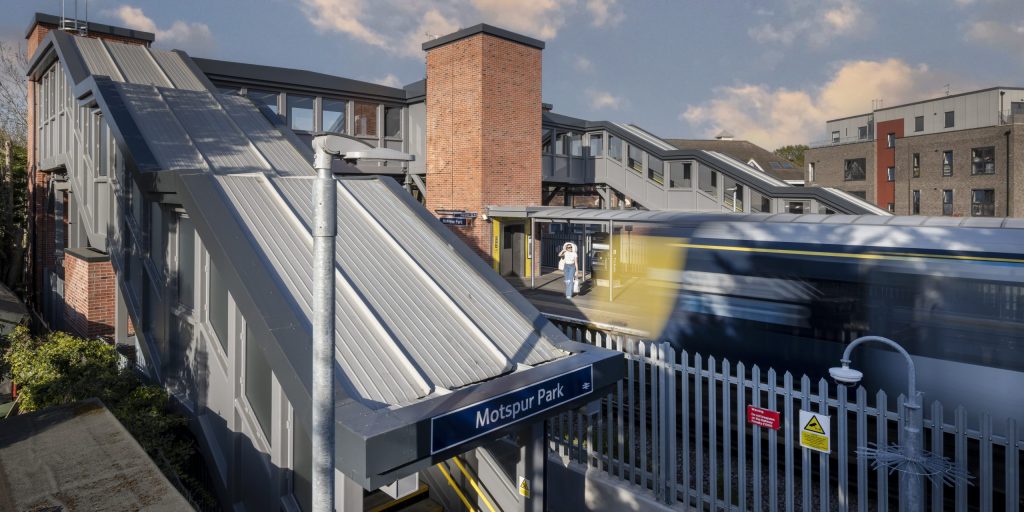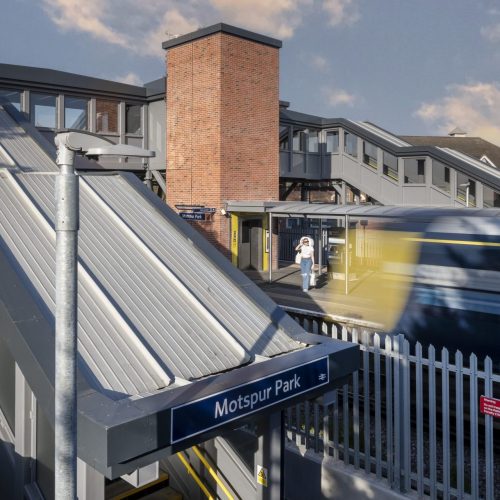Access for All (AfA) schemes present many practical difficulties for engineers, designers and project managers. Sites are usually small and constrained with limited access to platforms. Despite these challenges, stations need to remain functional while work is carried out. Disruptions and closures have to be kept to the absolute minimum.
It’s hard to imagine a world where these needs could be met without extensive, and imaginative use of modular construction. If there isn’t physically or logistically the space to carry out much of the work on site, it has to be done elsewhere. Modular approaches also encourage standardisation, which helps reduce costs and lead times even more.
Precision and Collaboration
Modular construction is a concept. Achieving the benefits in terms of reduced cost, time, disruption and emissions depend on how that concept is put into practice. Precision is essential as there’s limited scope to modify assemblies onsite to make them fit. Managing project interfaces between designers and specialist contractors is a critical capability in all AfA projects.
Installing a complete piece of equipment that has been assembled offsite is usually the most time and cost-efficient approach. But it’s not always feasible. At Grays Station, overhead power lines meant that a novel approach had to be found to assemble the new lift onsite, instead of the established method of full offsite manufacturing.
Detailed Planning
Limited working and storage space adds another dimension to project planning. Carrying out multiple operations simultaneously is generally an effective way to truncate project schedules. With AfA schemes this is often not possible – so project phasing has to be carefully planned.
At Barnes Station everything needed for a forthcoming week’s activities had to be brought to site and craned into the highly confined compound during the weekend. Detailed planning ensured everything needed was on-hand, while nothing superfluous took up valuable space.
Blending Standardised and Bespoke
For most projects the ideal solution blends a standardised modular approach with station-specific requirements. Motspur Park included two footbridges, three lifts and three staircases. The modular components were pre-assembled off site and delivered in sections for on-site installation.

In addition, the existing ticket office was demolished and a new one, that also included a waiting room, was built. A 30-metre canopy was added, as was a new accessibility toilet. The entire station was re-wired and re-lit using motion and light sensitive lamps. These unique needs were incorporated into the ‘standard’ AfA activities.
Experience with modular construction has played a vital role in our successful AfA schemes. Equally important is the capability to apply modular and offsite methods in a thoughtful way to achieve the best possible outcomes for each individual project.
To find out more, please access our AfA Resource Centre below.
Access Our Resource Centre
By signing up, you’ll gain access to our resource hub, designed to support rail operators, designers and project teams in delivering successful Access for All (AfA) projects.
Access valuable resources, including:
- Proven Practices: Practical guides on AfA project management to improve efficiency, reduce costs and achieve sustainable outcomes.
- Regulatory Guidance: Clear insights into compliance requirements to ensure your projects meet the highest standards of accessibility and safety.
- InnovateUK Report Summary: Detailed findings on the future of accessible and inclusive rail travel in the UK.
- House of Commons Report Overview: An overview of the legislative framework for AfA, including its alignment with the Equality Act 2010.
Sign up today to access these essential resources—completely free.

